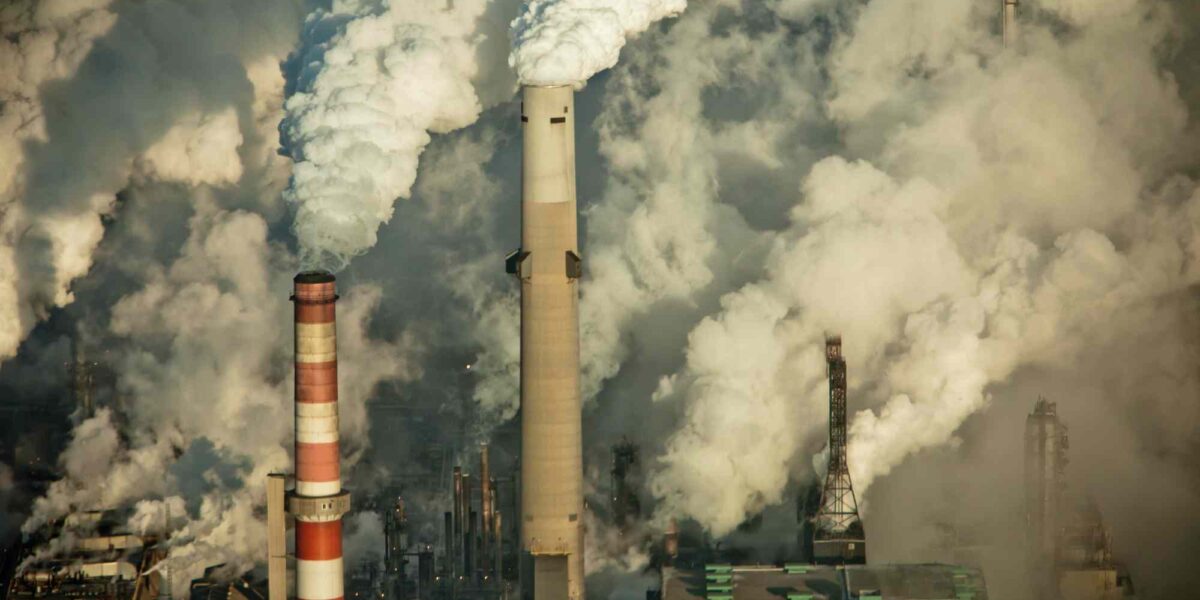“I play to win … We are in the business to make money and as much of it as possible.”
Sounds like someone’s been to business school, where profit maximization is the guiding principle.
In fact, these are the words of Suncor CEO (and business school graduate) Rich Kruger who last week announced that his oil company is refocusing on fossil fuel extraction and cutting back on plans to transition to cleaner energy — even as large parts of the country were engulfed in out-of-control wildfires exacerbated by climate change.
One could conclude that Suncor has reached a stage where its profit-maximization strategy has morphed into, well, insanity.
The world is currently at 1.1 C of warming above pre-industrial levels; and we’re on track to hit 1.5 C by the early 2030s — the point at which climate scientists believe there will be irreversible catastrophic consequences, including the drying out of the Amazon and the melting of polar ice sheets.
And yet we’re not cutting back. According to the International Energy Agency, given current policies, world oil consumption will continue to rise until 2030 and then remain at or near that level until 2050.
And July was the planet’s hottest month on record.
But no worries; let’s just keep doing things that ensure wildfires get bigger, hotter and more out of control, along with ever-worsening floods, drought and heat domes.
Is there a word to describe this behaviour other than insanity?
Yet this is the norm, as we continue to accept the business model that prioritizes profit maximization, even when it leads to horrendous death and destruction.
Or as British writer George Monbiot once observed: “If you have psychopathic tendencies and are born to a poor family, you’re likely to go to prison. If you have psychopathic tendencies and are born to a rich family, you’re likely to go to business school.”
While concern about climate change is increasing, mobilization to fight it is definitely falling short. And, ominously, as the Suncor CEO’s words suggest, the immensely powerful fossil fuel industry — the main driver of climate change — is feeling frisky and freshly self-assured.
At the height of the pandemic when oil demand fell, the power balance shifted, empowering the global public and pushing Exxon, Shell and BP to make commitments to reduce their carbon emissions and focus on transitioning to clean energy — commitments that all three oil giants have recently abandoned.
Indeed, now with oil demand recovered and rising due to the war in Ukraine, the oil giants are strutting around with new-found swagger, as captured by the New York Times headline: “Big Oil gets its Mojo back.”
The last thing we need is for Big Oil — which has spent decades actively undermining global efforts to tackle climate change — to get its Mojo back. But there it is.
Geographer Jared Diamond has documented the collapse of several past advanced civilizations — the Mayans, the Puebloans of Chaco Canyon in New Mexico and the Viking settlers of Greenland — after they failed to adequately deal with severe climate shocks.
In his 2005 bestseller “Collapse: How Societies Choose to Fail or Succeed,” Diamond identified three key indicators of imminent collapse, including a persistent pattern of environmental change, signs that existing modes of production were aggravating the problem and the failure of the elite to alter course to stop the destruction.
All three indicators are clearly evident today, argues U.S. international security expert Michael T. Klare, who adds that the summer of 2023 — and notably Canada’s wildfires — suggest that the process of collapse may already be underway.
Certainly, in today’s world, where the business model still dominates, our elite is not only failing to alter course, they’re actively revving up their engines and charging full steam ahead.
They’re like the whip-crazy cowboy hooting with joy as he rides a nuclear warhead in the 1964 movie classic “Dr. Strangelove,” raucously whooping it up and yelling “hee-haw” as he leads us all to oblivion.
This article was originally published in The Toronto Star.



